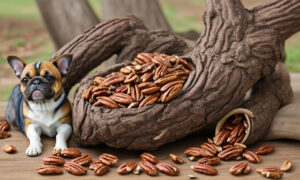Mushrooms: a culinary delight for humans, but what about for chickens? Poultry owners often find themselves questioning what’s safe for their feathered friends to consume. With a myriad of dietary advice available, it’s crucial to discern fact from fiction. In this comprehensive guide, we uncover the truth behind the often-asked question: can chickens eat mushrooms? Join us as we delve into the nuanced world of chicken diets, examining the potential risks and benefits of incorporating mushrooms into their meals. Here, not only will we demystify the myths surrounding chickens and mushrooms, but we’ll also provide practical information to support the well-being of your poultry.
Understanding the dietary needs of chickens is essential for ensuring their health and productivity. As omnivores, chickens enjoy a varied diet, but certain foods can pose risks. Just like their human caretakers, chickens may encounter a variety of mushrooms in their environment, yet not all mushrooms are created equal. Some can be a nutritious snack, while others may be downright dangerous. In this article, we dive into the types of mushrooms that are safe for chickens, the nutritional benefits they can offer, and the precautions you should take to protect your flock from the perils of poisonous varieties.
The Nutritional Profile of Mushrooms for Chickens
When considering mushrooms for your chickens, understanding their nutritional benefits is key. Here’s what mushrooms can offer:
Vitamins and Minerals in Mushrooms
- Vitamin B Complex: Supports energy metabolism and brain function.
- Vitamin D: Crucial for calcium absorption and bone health.
- Selenium: A potent antioxidant that boosts immune function.
- Potassium: Essential for muscle activity and fluid balance.
Related Post; Can chicken eat zucchini
Mushroom Safety: Not All Are Created Equal
While some mushrooms boast healthful properties for your chickens, others can be toxic. Thus, it’s imperative to distinguish between safe and harmful varieties. Common edible mushrooms such as button, cremini, or portobello mushrooms can be a part of their diet, but wild mushrooms should be strictly avoided due to the risk of toxicity.
What Constitutes a Safe Mushroom Meal for Chickens?
Identifying Edible Mushrooms
When selecting mushrooms for your chickens, opt for those that are also safe for human consumption. These include mushrooms from reputable grocery stores or markets, as the risk of poisonous varieties is minimal.
Preparation Matters
Proper preparation is essential in offering mushrooms to chickens. Raw mushrooms contain chitin, a fibrous substance that can be hard for chickens to digest. Cooking the mushrooms helps break down chitin and makes them safer and more digestible for your flock. Here’s how to prepare them:
- Wash the mushrooms thoroughly to remove any dirt or debris.
- Cook the mushrooms by steaming, boiling, or sautéing.
- Cut the mushrooms into small pieces to prevent choking and ensure easy consumption.
Moderation is Key
Even safe mushrooms should be given in moderation. They should not replace a balanced diet but rather complement it. A small portion as an occasional treat is sufficient.
The Dangers of Wild Mushrooms: A Cautionary Tale
Venturing into the wild realm of mushrooms can be a perilous journey for your chickens. While some wild mushrooms are edible, others contain toxins that can lead to illness or even death. Here’s why you should avoid them:
Recognizing Toxic Mushrooms
Wild mushrooms can be deceiving, as toxic varieties often resemble edible ones. Without expertise in mycology, it’s nearly impossible for the average person to identify safe mushrooms. This makes indiscriminate foraging dangerous.
Symptoms of Mushroom Poisoning in Chickens
If a chicken ingests poisonous mushrooms, symptoms can range from mild to severe. Some signs to watch out for include:
- Lethargy
- Loss of coordination
- Diarrhea
- Seizures
- Death in extreme cases
Immediate veterinary attention is necessary if you suspect mushroom poisoning.
Fact-Checking Myths About Chickens and Mushrooms
There’s a lot of misinformation flying around regarding chickens and their ability to consume mushrooms. Let’s debunk some common myths:
Myth 1: Chickens Can Naturally Avoid Toxic Mushrooms
While chickens have instincts, they’re not foolproof. Believing that they can inherently sense and avoid toxic mushrooms is a misconception. It’s better to err on the side of caution and keep all potentially dangerous fungi out of their reach.
Myth 2: All Wild Mushrooms Are Safe if Other Wildlife Eats Them
Wild animals may have different tolerances to certain toxins found in mushrooms. Observing wildlife consuming a mushroom doesn’t guarantee its safety for chickens or humans.
Myth 3: Cooking Neutralizes All Mushroom Toxins
While cooking can reduce some harmful substances, it doesn’t neutralize all toxins present in certain wild mushrooms. The only safe bet is to provide mushrooms known to be safe through commercial sourcing.
Integrating Mushrooms into Your Chickens’ Diet: Best Practices
So, how can you safely incorporate mushrooms into your chickens’ diets? Here’s a straightforward approach:
Start with Store-Bought Mushrooms
Since commercially available mushrooms are meant for human consumption, they’re a safer choice. Begin by introducing these varieties into your chickens’ diet.
Observe Your Chickens
After giving your chickens mushrooms, monitor them closely for any adverse reactions. While rare, some chickens might be sensitive even to safe varieties.
Keep it Varied
Chickens thrive on a diverse diet. Alongside mushrooms, ensure that they have access to a range of foods like grains, greens, and protein sources such as insects and worms.
Conclusion: Embracing Mushrooms in Your Chicken’s Diet
Chickens can indeed eat mushrooms, provided they are the right types and prepared correctly. By following the guidelines outlined in this article, you can offer your chickens a tasty treat without compromising their health. Remember to choose safe, edible mushrooms, prepare them properly, and offer them in moderation. With these precautions in place, your chickens can enjoy the nutritional benefits of mushrooms safely and happily.
As we’ve peeled back the layers of the mushroom debate for chickens, it’s clear that there’s a safe path for those who wish to enrich their flocks’ diet with this versatile food. By embracing the facts and tossing aside the myths, you can keep your chickens both nourished and safe. Bon appétit, chickens!







